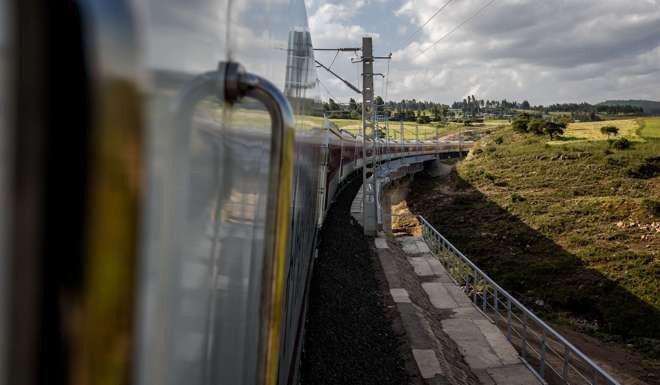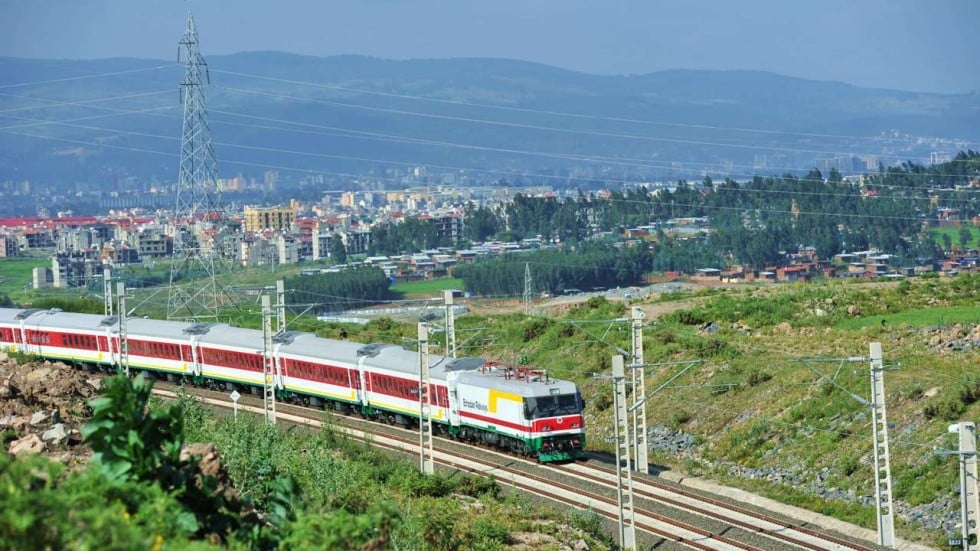Why China-built electric railway linking landlocked Ethiopia to sea matters to Beijing and Africa
The 750km line, which began trial services last October and was launched on Tuesday, seen as important milestone in Beijing’s growing presence and influence in Africa
PUBLISHED : Wednesday, 11 January, 2017
A US$3.4 billion electrified railway line built by China was officially launched on Tuesday to link the Horn of Africa to its inland countries.
The line connects the strategic Red Sea port of Djibouti and Addis Ababa, the capital of landlocked Ethiopia, the fastest growing economy in Africa.
Trial services began last October and regular services transporting goods and passengers are expected to begin early this year.
Here we take a look at why the project matters, to both the region and to China.

How can the project benefit the region?
The 750km-long railway will play a key role in regional economic integration and Africa’s integration into the global economy, providing landlocked countries with faster access to the sea.
With a maximum speed of 120km/h for cargo trains and 160km/h for passenger trains, the railway line is expected to link Addis Ababa and Djibouti in about 12 hours. This is a far cry from the strenuous trip along a congested, potholed road that currently takes about three days.
More than 90 per cent of Ethiopia’s trade passes through Djibouti, which accounts for about 70 per cent of the activity of its port, according to Djibouti’s International Free Trade Zone.
As the first fully electrified railway in Africa, the line is also widely seen to be a start of a Trans-African railway project, in which a 2,000km track will be expected to connect Djibouti with Ethiopia to South Sudan, which could one day cross the continent from the Red Sea to the Atlantic Ocean. But the railway will have to pass through war-torn countries such as South Sudan and the Central African Republic.
What is the project’s significance to China?
The launch is seen as an important milestone in China’s increasing presence and burgeoning influence in Africa. Beijing is seeking to play a larger role in the mostly undeveloped continent that used to be under the dominance of the West.

The line also opens the door to more Chinese investment in the region.
He Wenping of the Institute of West-Asian and African Studies at the Chinese Academy of Social Sciences, said it could serve as an example for future railway projects in Africa and facilitate Chinese exports of rail equipment and machinery, as well as encouraging Chinese firms to build housing projects along the line.
Why is Djibouti strategically important to China?
Djibouti, the smallest state in the Horn of Africa, sits on the bank of the Bab-el-Mandeb, a 30km-wide strait between Africa and the Arabian peninsula, connecting the Red Sea and the Gulf of Aden. It serves as a gateway to the Suez Canal, one of the world’s busiest, and a strategic link between the Mediterranean Sea and the Indian Ocean.

What are the other Chinese projects in Djibouti?
China is a major investor in Djibouti, with many Chinese state-owned companies launching infrastructure projects in Djibouti.
These include a US$590 million multi-purpose port, a cross-border pipeline that channels drinking water from Ethiopia, a US$4 billion natural gas project, which features a natural gas pipeline from Ethiopia, a liquefaction plant and an export terminal in Djibouti.

Most of Djibouti’s 14 major infrastructure projects, which have been valued at a total of US$14.4 billion, are being funded by Chinese banks, according to Agence France-Presse.
China has also set up its first overseas naval base in Djibouti, although Beijing insisted that it was only a logistic hub for China’s escort task force in the Gulf of Aden. The 36 hectare outpost is seen as a crucial step in China’s pursuit of its ambition to become a major global power.
Additional reporting by Agence France-Presse

No comments:
Post a Comment
Comments always welcome!